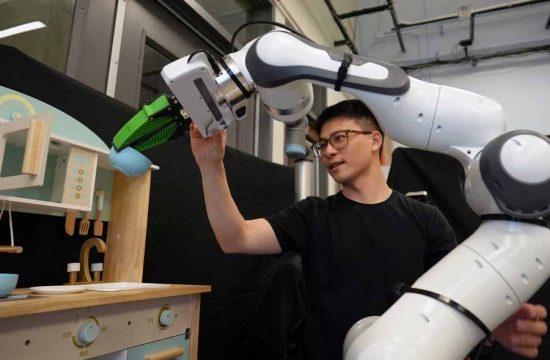Research Covers Humans’ Historical Adaptation to Climate Change
A research term including a scholar from Education University of Hong Kong (EdUHK) has given a new perspective into human adaptation to climate change. The study’s findings were recently published in Nature.
Climate change is an important issue which has been extensively discussed over the past years. While many experts believe that climate change has had a profound impact on human history, to date there has been little discussion about how humans have reacted to these altering circumstances.
With this in mind, a research team of 18 experts from different countries and disciplines undertook a study to understand the interplay between what they have called “History of Climate and Society”. The team sought to examine the role of human resilience to climate change in shaping human history and the complex connection between them.

Led by Dr Dagomar Degroot from Georgetown University, the research team comprised 18 scholars from the Germany, Poland, Switzerland, United Kingdom, United States, mainland China and Hong Kong. Their expertise covers geography, archaeology, history to paleoclimatology. Among the team was Dr Pei Qing, Assistant Professor of the Department of Social Sciences at EdUHK, who contributed to revising the design and framework of the entire study.
To understand the effect of climate change on human history, the team selected different societies across continents for case analysis covering two climatic eras: the Late Antique Little Ice Age around the 6th century; and the Little Ice Age from the 13th century to the 19th century. Among these cases, Dr Pei also contributed to the Asia case study – the rise of the Jianzhou Jurchens during the early 17th century – in collaboration with Dr Cui Jianxin from the Northwest Institute of Historical Environment and Socio-Economic Development of Shaanxi Normal University.
The pair found that although both the Jianzhou Jurchens and the Ming Dynasty were affected by drought through monsoon failure, the former thrived and survived because of their higher mobility, thanks to their tradition of hunting and gathering. This enabled them to adapt through encroaching on cultivated land to the south and controlling trade networks.
The interdisciplinary team also looked into how, in the 6thcentury, people in the Middle East under Roman rule made use of the humid climate to cultivate and expand their territory; how, in 13thcentury, the governments of Bologna and Siena used strategies like food regulations to deal with natural disasters and minimise famine and mortality; and how, in the 17th century, Dutch sailors took advantage of precipitation and prevailing winds to defend themselves against Spanish invasion. These cases showed how human resilience to climate change could help explain the rise and fall of different political regimes or dynasties in human history.
Dr Pei said, “Many studies in the past have demonstrated the impact of historical climate change on human societies, particularly on a long-term and large spatial scale. However, our study provides a new perspective for academic research, indicating that the communities could effectively respond to the challenges of climate change.”
According to Dr Pei, historical cases also tell us that successful adaptation to climate change usually depends on the ability of a community to control or capitalise resources.
Dr Pei pointed out that this study provides insights for the public to reflect upon the resilience of different peoples against climate change. “When a country acts to deal with changing climatic conditions, its measures may bring a negative influence to other countries. When formulating climate actions or related policies, countries should not only consider their own benefits, but also their neighbours, and even the whole world, so as to pursue and realise the equitable principle of combatting climate change.”
The study also uncovered several common criteria of historical societies that coped well with climate change, including strong trade networks, high mobility and the capacity to learn from mistakes. “Human societies’ evolving resilience and historical successes have given us confidence in dealing with global warming. However, we should also carefully consider our relationship with nature and learn the lessons from our history,” Dr Pei said, adding that he hoped this study would provide a solid academic foundation for the scholars to better explore the relationship between historical climate change and human societies in the future.
—ResearchSea








